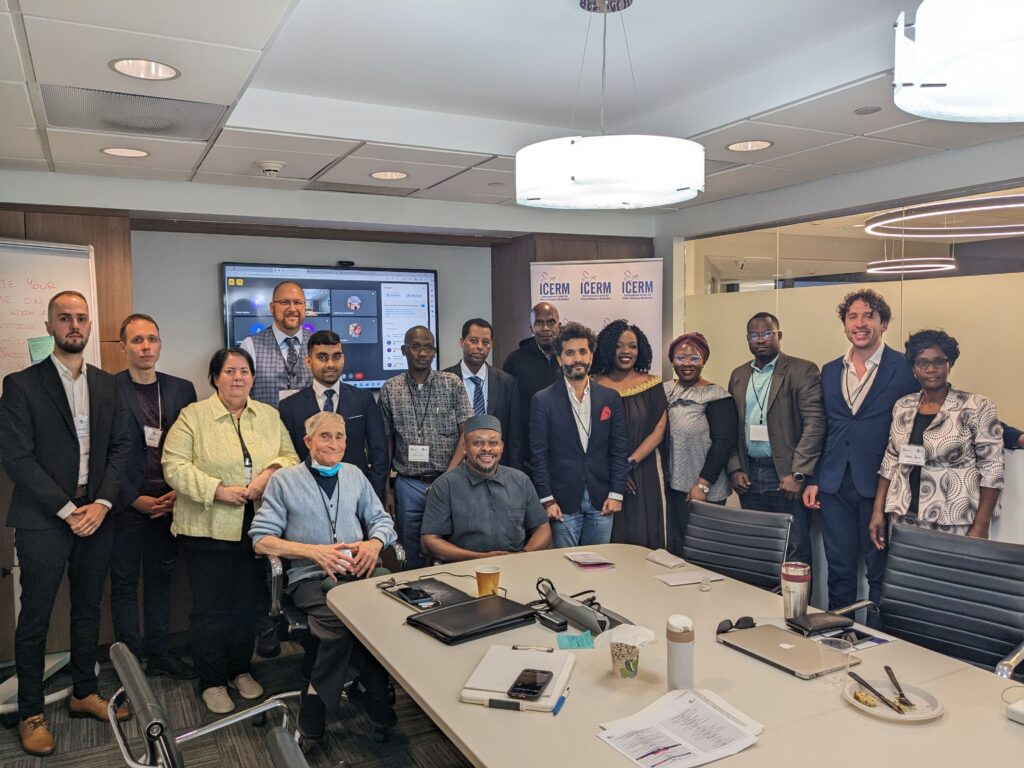Diversity, Equity, and Inclusion Across All Sectors: 8th Annual Conference Report


Driving Change: Insights from the 8th Annual Conference Report on Diversity, Equity, and Inclusion Across All Sectors
Every September thought leaders from around the globe travel to New York to attend the Annual Conference hosted by International Center for Ethno-Religious Mediation (ICERMediation). This gathering, now in its eighth year, is strategically scheduled to align with the General Assembly of the United Nations and has as its purpose the same fundamental tenets as the United Nations itself.
The theme for this year’s Annual Conference was Diversity, Equity, And Inclusion Across All Sectors: Implementations, Challenges, and Future Prospects. In his salutatory remarks, the ICERMediation President and CEO Basil Ugorji, Ph.D. opened the conference by personalizing the mission for every attendee. Said Dr. Ugorji, “We will return home as ambassadors of peace to our respective communities.” Dr. Ugorji went on to emphasize that understanding and embracing diversity across all sectors “isn’t just an aspiration, but an imperative.”
Keynote speaker, Dr. Arthur Lerman, Professor Emeritus, Mercy University added to this sentiment during his address by focusing on the answers to the question: “What is necessary to create a humane society?” In outlining eight main ideas (which later gave way to a ninth idea), the overarching theme centered on the intrinsic worth of every human being. Said Lerman, “We must not give up on diversity, equity, and inclusion. We must listen to people and give empathy.” Thus, the stage was properly set for ICERMediation’s Eighth Annual Conference.
With a variety of attendees and presentations, the Conference schedule was full of learning and networking opportunities. Countries/regions represented and/or discussed at the Conference included Algeria, Armenia, Austria, Azerbaijan, China, Ethiopia, France, Germany, Iran, Japan, Kenya, Kurdistan, the Lake Chad region, Malaysia, Nigeria, Slovakia, Tanzania, Uganda, the United States, and others.
The subject matter of the presentations found themselves to be highly diverse as well. Topics ranged from the importance of NGO’s, to maintaining an awareness of how we allow others to present themselves during mediation. From predicting future potential humanitarian crises based on climate change, to understanding what ‘equity’ means in the various educational systems around the world, those who took the podium to share their studies and findings faithfully applied the Conference’s theme of Diversity, Equity, and Inclusion Across All Sectors.
Of course, never far from the topic of discussion were the 16 armed conflicts around the globe. (At the time of this writing, that number has increased to 17.) It was stated that of these armed conflicts, 15 (now, 16) are ethno-religious in nature. Dr. Badru Hasan Segujja, Ph.D., Senior Lecturer of Peace and Conflict Resolution at Kampala International University in Dar es Salam, Tanzania, asked a rhetorical, yet highly relevant and pointed question: “Rather than addressing these conflicts with political approaches, why not handle them from the perspective of ethno-religious mediation?”
As academics and practitioners of ethno-religious mediation on the local, national, and international scales, we were challenged, educated, and inspired. We were reminded of the beauty of all that DEI is, and left with the hope of all it truly can be as it encounters all sectors.
The dates for the 9th Annual International Conference of Ethnic and Religious Conflict Resolution and Peacebuilding are September 24-26, 2024. The theme is: Revitalizing Indigenous Languages, Cultures, Cuisines, Histories, and Religions.
This conference report was written by Jason Salyers.


